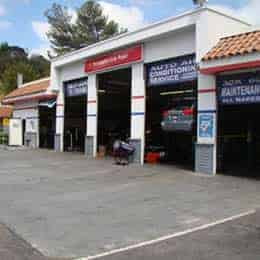Key Man Insurance: The Ultimate Guide
If you own and manage your business, then you’re a key person in your business. If you were to get injured or, heaven forbid, were killed, then your business would likely suffer.
This gets at the heart of what key man insurance is.
Of course, to be politically correct, it should be called key person insurance. But for this article, we will use key man as a gender-neutral term.
Let’s dive in and help you learn everything you’d need to know about this important type of insurance.
If you have questions or want to check the current prices, you can contact us today and get all the information you need fast and free!

What Is a Key Man Insurance Policy?
Very simply, key man insurance is a personal insurance policy taken out on the life of an employee who is key to running a company or a business. If that person becomes disabled or dies, the policy pays out the face value of the key employee insurance policy. This payout or benefit is then used to compensate the company for losing the key person and to cover costs associated with finding a replacement.
The two main types of insurance policies that are available for key man insurance are:
- Critical Illness Insurance
- Life Insurance
All insurance agencies sell these insurance products.
Why Do Businesses Need Key Man Insurance?
Key person life insurance can be a life saver for a startup business. When there is just one key person who carries much of the business affairs around in their head, losing this person can have a disastrous effect on the business operations.
In a startup, it would be important to both the operation of the business and the investors’ money to replace the key man with a fully qualified individual who has the smarts and the ability to keep the company running after the loss of the founder.
Before insurance companies began introducing the more sophisticated insurance policies available today, life insurance was the most common form of key man insurance. If the key person died, then the policy paid out.
Most key individuals at a company carry personal sickness and accident coverage, generally called disability insurance. When incapacitated due to an illness or an accident, a disability policy pays out a monthly sum equivalent to a percentage of the key person’s monthly salary. This policy was a great help to the key employee but of little help to the business, particularly if the key employee was off work for an extended period.
How Does Critical Illness Key Insurance Work?
Then along came a new type of business insurance called Critical Illness (CI). The principle behind CI is very simple. An insurance company will pay out a pre-determined lump sum upon the policyholder’s diagnosis of a certain condition specified in the policy.
When CI policies were first introduced to the market, only half a dozen medical conditions were covered. The number has increased with some insurance companies offering up to 60 covered conditions. It should be kept in mind that CI is not disability insurance (DI). Generally speaking, DI pays up to two-thirds of an employee’s wage or salary when the employee cannot work due to an accident or an illness such as a broken leg.
How does key man CI policy work? Let’s say the key person is diagnosed with a life-threatening form of cancer. Once the diagnosis is confirmed, the clock starts ticking from that date. If the insured, in this case, the key person, survives 30 days from the diagnosis, a claim is submitted to the covering insurance company. After the insurance company has confirmed and authorized the claim, the policy’s beneficiary receives a one-time payment for the face value of the policy. In the case of key man insurance, the policy’s beneficiary would be the company.
Read more: The Complete Guide to Buying Commercial Insurance
The Basics of Insurance Policies
It should be remembered there are three key elements to any insurance policy.
- The Owner of the Policy: the person or company who pays the premiums that keep the policy in force.
- The Insured: the person whose life or health is insured.
- The Beneficiary: the person or company to whom the insured amount is paid.
An important issue to remember with Life, Critical Illness, and Disability Insurance is that the approval and the resulting cost (the premium) of a policy are based on the applicant’s health.
The underwriters are the insurance company employees who review and approve or decline insurance applications.
How To Get Approved for Key Man Insurance
Important factors in getting underwriting approval of a key man insurance policy are:
- Current health
- Age
- Lifestyle
- Occupation
- Family history
- Health history
- Family health history
- Driving record
You must be in good health to get the lowest premium rate. If you’ve had a recent heart attack or been diagnosed with a form of life-threatening cancer (two examples), you will not be approved. If you are in reasonably good health but overweight, a heavy drinker, or a heavy smoker, you could be approved, but the insurance company will rate you.
In other words, you will pay a higher premium. In the case of key man insurance, this higher premium will be paid by the policy owner, in this case, the employer.
Age is also a factor in how much you pay in premiums. Very simply, the older you are, the higher the premiums. So how much does key man insurance cost?
How Much Does Key Man Insurance Cost?
For example, for a 35-year-old executive in good health, the cost of a $1 million term life insurance policy is between $53 and $75 a month, according to an online insurance provider. However, rates will vary according to several factors.
Occupation is another factor in key person insurance. The premiums on a policy for a jet-setting executive traveling extensively will be higher than the premiums for an office-bound executive.
Also, previous illnesses can be factored in. If you have had a heart attack and open-heart surgery, the insurance company underwriters may offer a rated policy. High blood pressure, a dangerous lifestyle, type of employment, and family health history are all factors in the approval or decline of a policy and how much you will pay in premiums.
Being a cancer or heart attack survivor may not rule out acceptance. You would have to be one year out from having cancer or being heart attack free, though, and the policy would probably be rated.
Your driving record will also come under scrutiny when applying for a policy. If you have a record of speeding and accidents, you could end up with higher premiums or even be declined.
Key Man Insurance vs Life Insurance?
When a person needs life insurance for a purpose other than key man insurance, the owner of the policy and the insured will be the same person. In a marriage, the beneficiary will usually be the insured’s spouse.
The policy owner, the insured, and the beneficiary are the same with critical illness insurance.
With key man insurance, the company or business will be the policy’s owner and beneficiary. The employee will be the insured, with the company paying the premiums for the policy.
In a key man critical illness policy, the employee may be awarded a portion of the policy proceeds if the employer chooses. With a key man life insurance policy, a $10,000 tax-free death benefit may be paid out to the deceased employee’s spouse.
A major side benefit for private companies are the reduced taxes. The proceeds or payout of the policy can be paid out as tax-free dividends to the policy owner. There is usually no key man insurance policy income tax.
Whether applying for key man insurance for a life insurance policy or a critical illness policy, the process is the same. There is a slight difference in approval odds between the two policies, with the underwriting process for CI a little more rigorous than life insurance.
Universal Life Insurance as a Key Man Policy
A popular insurance policy for key man insurance is a Universal Life Insurance policy. This is a policy with an investment account embedded. Of the monthly premium, part of it pays for the insurance, and the balance is deposited into a tax-sheltered fund.
Over several years, the fund can grow to the point where there are enough funds to pay the premiums until the fund is exhausted.
Some businesses use these policies, commonly known as UIs, as part of key man insurance and an incentive program for the employee or key person. The policy can be set up so that the key employee dies while still employed, the company receives the life insurance aspect, and the fund goes to the beneficiary of the key employee.
Tax and Insurance Benefits
There are certain key man insurance tax implications with these policies, and it is best to talk to an accountant or tax adviser before diving in. This is the same with setting up any insurance policy for business purposes. The tax rules in most jurisdictions are relatively straightforward, with the benefit from a life insurance policy payout generally being regarded as a tax-free benefit.
Key employees can also be the beneficiary of the disability policy. The employer owns the plan and can be the beneficiary of the benefit when the key employee is disabled. Generally speaking, the proceeds are usually assigned to the employee. Again, err on the side of caution and check for tax implications.
The Types and Benefits of Key Man Insurance
In summarizing the types and benefits of key man insurance, the following are the more common types:
- Term Life: No cash value and coverage expire at the end of a term or can be renewed when it ends.
- Whole Life: Has a cash value and pays a benefit on the insured’s death.
- Universal Life: Has an investment fund, pays a benefit, and pays out the fund on the insured’s death.
- Critical Illness: Pays a lump sum benefit upon the insured’s diagnosis of a defined illness.
- Disability: Pays a monthly benefit if the insured cannot work due to an accident or illness.
The main reason behind key man insurance is to provide funds for the company to replace the deceased key employee quickly. It provides the funds for recruiting and training a new employee in the event a key person dies or is disabled for some time.
FAQs
How Much Does a Key Man Insurance Policy Cost?
This depends upon the age and health of the key person and the type of policy the company is purchasing.
How Is Key Man Insurance Determined?
The easiest and simplest means to determine a key employee’s value is multiples of income. Your insurance company or agent will usually use a formula based on a multiple of 5 to 7 times the salary and benefits of the employee in question.
Is Key Man Insurance Expense?
It is not more expensive than regular insurance. It depends upon the employee’s age, health, and the required benefit.
Who Owns a Key Man Insurance Policy?
The employer and the business own the key man insurance policy.
What Are the Benefits of Key Man Insurance?
The main benefit is to the company. The loss of a key employee can be a problem for a company, particularly a young growing company. An infusion of tax-free capital can offset the issue of the deceased key employee.
Are you still confused about cyber liability insurance, or do you need some help getting a quote for your business? Contact us today and get all the information you need fast and for free!
Businesses We Cover
Businesses We Cover

Auto Repair Shops

Beauty Salon

Churches

Cleaning Businesses

Construction Companies

Contractors

Grocery Stores

Handyman Services

Locksmiths

Manufacturing

Photographers

Plumbers

Restaurant

Retail Store

Wholesale Distribution

Michael J Trigg
Michael owned an insurance agency for 15 years selling personal and corporate policies, segregated funds, mutual funds, and retirement and education plans. He is now a business consultant and freelance writer.
-
This author does not have any more posts.
